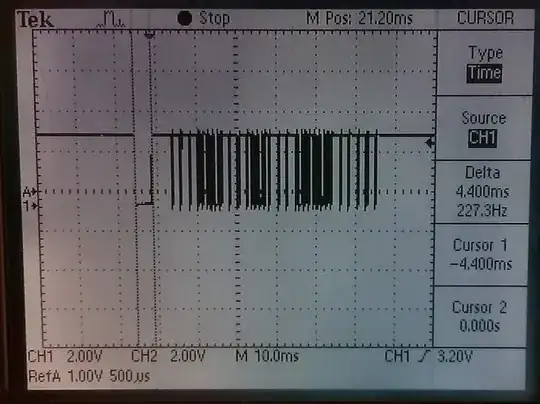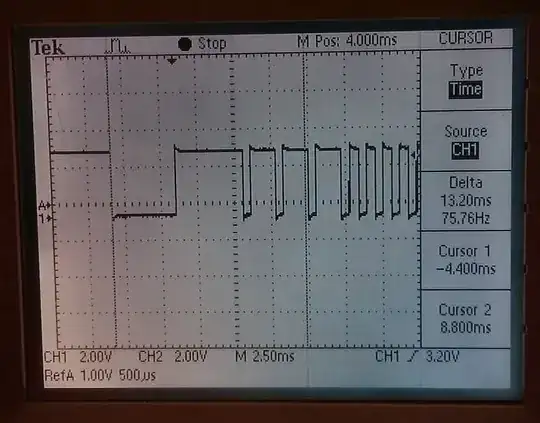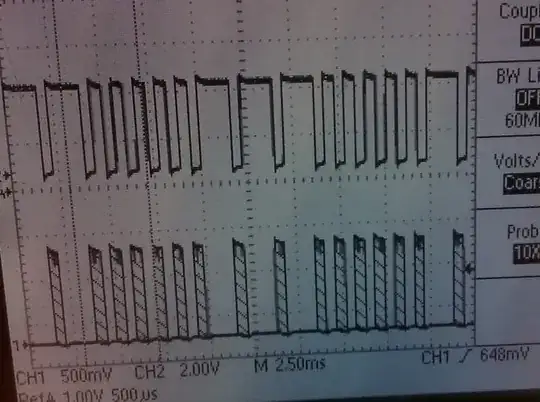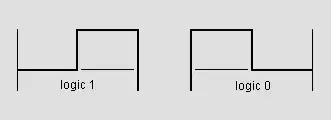I'd like to decode some IR signals from a TV remote control. I scavenged a 3 pin IR receiver from some old junk and hooked it up.
From what I've read about RC-5, I was expecting to see a start bit indicating the bit time, which I could synchronize to. But, I'm seeing lots of transitions per bit time.
Is this a sign that I'm mixing 38kHz and 56kHz devices? Or am I expecting the wrong thing?


Edit:
I was concerned that the weirdness I was seeing was the IR receiver being odd. So, I wired up a plain old 2 pin IR LED receiver to compare (bottom trace). With the LED, I see the 32kHz carrier wave and the modulated signal, the "smart" receiver filters out the carrier perfectly leaving just the pulse widths.
Ladyada tutorial explained it all.

